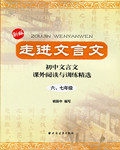题目内容
第Ⅱ卷 (共三节,满分45分)
第一节:(共5小题;每小题2分,满分10分)
根据短文内容,从短文后的选项中选出能填入空白处的最佳选项。选项中有两项为多余选项。注意请将正确答案写在二卷答题纸相应位置上。
Body language is the quiet, secret and most powerful language of all. It is said that our body movements communicate about 50% of what we really mean while words themselves only express 7%. So, while your mouth is closed, just what is your body saying…
Arms. 71 If you keep your arms to the sides of your body or behind your back, this suggests you are not afraid of taking on whatever comes your way. 72 If someone upsets you, just cross your arms to show you’re unhappy.
Head. When you want to appear confident, keep your head level. If you are monitor in class, you can take on this position when you want your words to be taken seriously. 73
Legs. Your legs tend to move around a lot more than normal when you are nervous or telling lies. If you are at interviews, try to keep them still.
Posture. A good posture makes you feel better about yourself. 74 This makes breathing more difficult, which in turn can make you feel nervous or uncomfortable.
Mouth. When you are thinking, you often purse (皱拢) your lips. You might also use this position to hold back all angry comment you don’t wish to show.
75 .
|
A.If you are feeling down, you normally don’t sit straight, with your shoulders inwards. |
|
B.If you are pleased, you usually open your eyes wide and people can notice this. |
|
C.Outgoing people generally use their arms with big movements, while quieter people keep them close to their bodies. |
|
D.How you hold your arms shows how open and receptive you are to people you meet. |
E.However, it will probably still be noticed, and people will know you’re not pleased.
F.However, to be friendly in listening or speaking, you must move your head a little to one side.
G.Don’t say too much when you’re happy.
71 ––75 DCFAE
【解析】略

 走进文言文系列答案
走进文言文系列答案